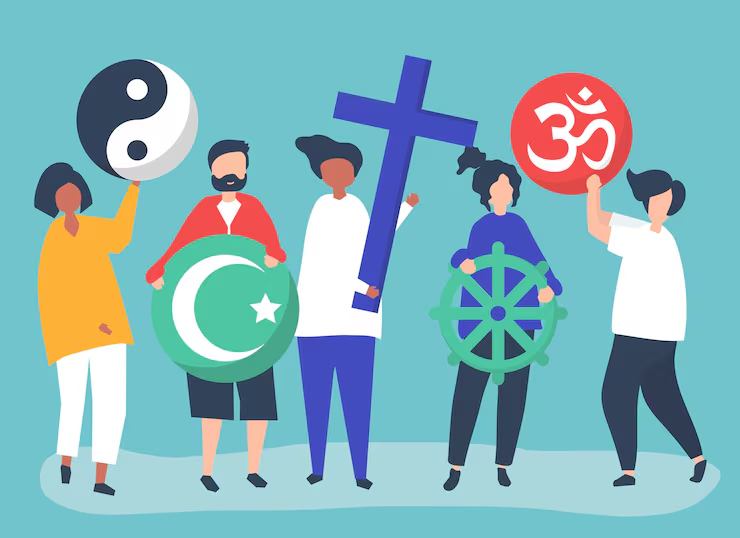Synopsis:
Foreign-funded NGOs are preparing to install multi-religious statues in two government hospitals in Kandy and Peradeniya. This article questions the legality, constitutional authority, and donor-driven influence behind such symbolic acts. It calls for public vigilance, legal review, and protection of the Buddha Sāsana under Article 9 of Sri Lanka’s Constitution. The core message: Sri Lanka’s public institutions must reflect native sovereignty—not external agendas.
A symbolic initiative is now scheduled to begin within two government hospitals—one in Kandy and the other in Peradeniya. Multi-religious statues are expected to be placed in these institutions, framed as gestures of harmony and coexistence. But beneath the surface of this narrative lies a deeper constitutional and cultural concern: Who decides what symbols belong in our public spaces? And under what authority are they placed?
Sri Lanka is a democratic republic where Buddhism holds the foremost place under the Constitution. According to Article 9, it is the duty of the State to protect and foster the Buddha Sāsana. This obligation is not ceremonial—it is legal, historical, and civilizational. Hospitals, as civic sanctuaries, are not symbolic laboratories. Their legacy is rooted in centuries of Buddhist healing—from Mihintale, the world’s first hospital, to King Dutugemunu’s village-by-village medical centers, and King Buddhadasa’s compassionate medicine. The presence of Buddha statues in these institutions is not ornamental. It reflects a doctrinal ethos of public care.
The Supreme Court of Sri Lanka has made this clear. In its 2023 determination on the Ayurveda (Amendment) Bill, the Court ruled that the State must actively protect the Buddha Sāsana and avoid any act—symbolic, financial, or regulatory—that causes harm or dilution. In 19/2003, the Court further affirmed that the right to propagate religion is not recognized as a fundamental right under Sri Lanka’s Constitution. Therefore, symbolic installations framed as “pluralism” or “coexistence” do not enjoy constitutional protection when placed in public institutions.
Recent symbolic activities appear to be supported by foreign funding streams originating from U.S. government agencies, European diplomatic missions, and global advocacy networks such as Freedom House, Open Society Foundations, and CAFOD. These campaigns, while presented as inclusive, raise urgent civic and legal questions:
- Are these foreign donors fully aware of the nature and constitutional implications of the symbolic activities being carried out in Sri Lanka’s hospitals?
- Is it legally and ethically acceptable for foreign governments to fund NGOs in another country to advance their own ideological interests—especially when executed through local organizations that appear to follow external directives?
- Do the financial reports of these donors truly reflect the constitutional realities of the host country, or are they crafted to tame hearts abroad—portraying symbolic success while ignoring doctrinal consequences on the ground?
This is not a rejection of international cooperation. It is a call for constitutional vigilance. Symbols matter. And when placed in public institutions, they must reflect the legal, historical, and cultural identity of the nation—not the editorial preferences of external actors.
In light of the above, the public must now demand:
- A formal review of all religious installations and symbolic activities planned or underway within the Kandy and Peradeniya government hospitals.
- Immediate suspension and removal of any unauthorized or constitutionally inconsistent symbols.
- A public clarification from the Ministry of Health regarding its policy on religious symbolism in state institutions.
- Assurance that the Buddha Sāsana will be protected from ideological dilution in all public spaces, especially those under state jurisdiction.
- A national inquiry into the role of foreign-funded NGOs in shaping symbolic policy within Sri Lanka’s public institutions, including hospitals, universities, and police departments.
- A legal and constitutional review of foreign donations used to influence symbolic and doctrinal representation in civic spaces.
This is not a matter of personal belief—it is a matter of constitutional guardianship and native sovereignty. The Buddha Sāsana is not negotiable. It is protected.
By Palitha Ariyarathna
This is a research-based civic submission. All references, rulings, and source materials can be submitted and forwarded upon request—for research purposes only.

